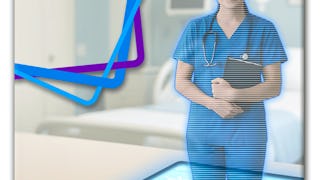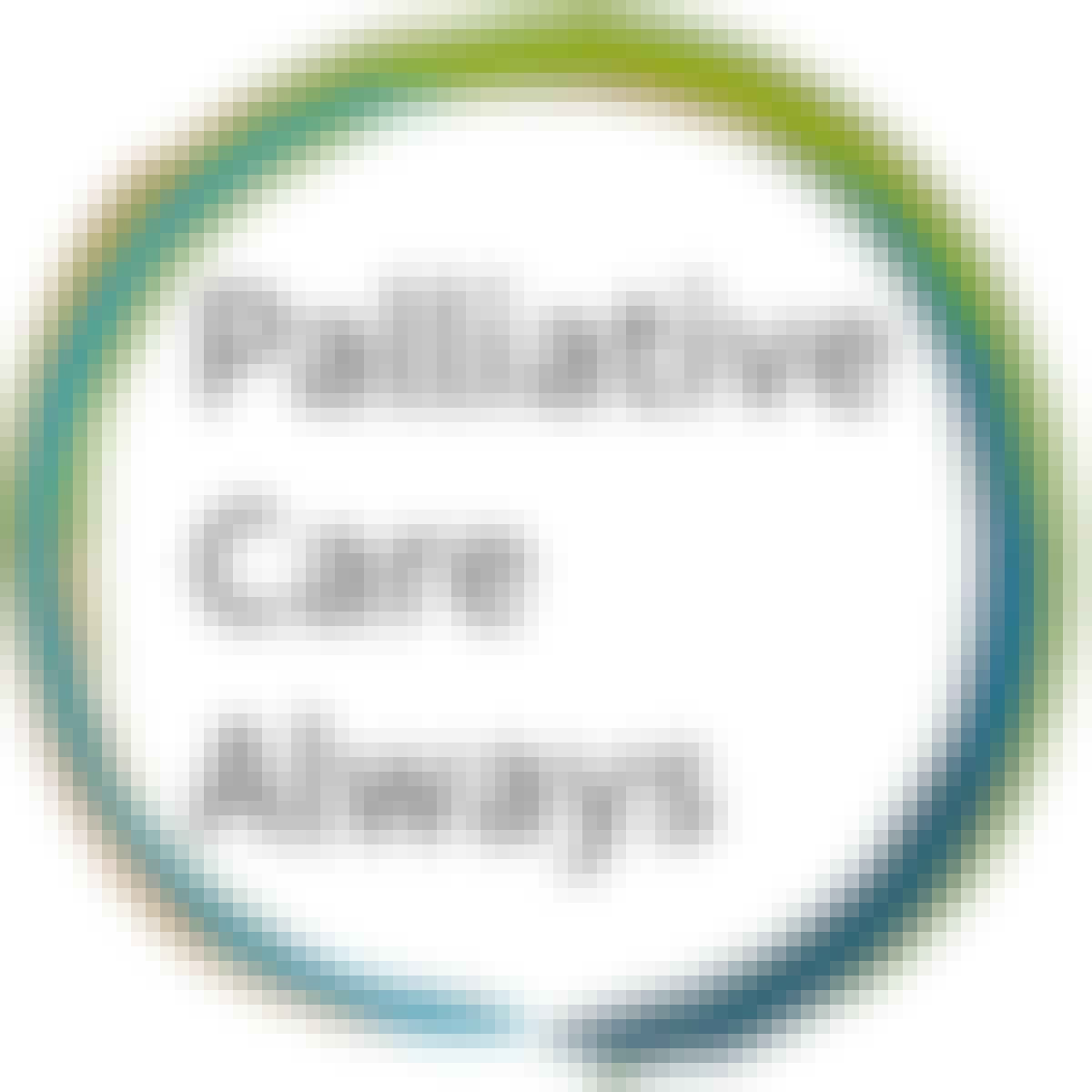- Browse
- Patient Safety
Patient Safety Courses
Patient safety courses can help you learn risk assessment, incident reporting, root cause analysis, and effective communication strategies. You can build skills in developing safety protocols, conducting safety audits, and implementing quality improvement initiatives. Many courses introduce tools like incident management systems and safety culture assessments, that support applying these skills in healthcare settings.
Popular Patient Safety Courses and Certifications
 Status: NewNewStatus: Free TrialFree TrialI
Status: NewNewStatus: Free TrialFree TrialIIllinois Tech
Skills you'll gain: Health Informatics, Clinical Informatics, Interoperability, Health Systems, Medical Records, Health Information Management, ICD Coding (ICD-9/ICD-10), Health Care, Medical Terminology, Stakeholder Engagement, Data Analysis
Intermediate · Course · 1 - 4 Weeks
 Status: NewNewStatus: Free TrialFree Trial
Status: NewNewStatus: Free TrialFree TrialSkills you'll gain: Patient Communication, Patient Advocacy, Nursing Care, Healthcare Ethics, Nursing Practices, Active Listening, Teamwork, Nursing, Patient-centered Care, Professionalism, Care Coordination, Conflict Management, Patient Education And Counseling, Communication, Health Care, Patient Evaluation, Health Assessment, Patient Preparation, Patient Safety, Decision Making
Beginner · Course · 1 - 4 Weeks
 Status: Free TrialFree TrialU
Status: Free TrialFree TrialUUniversity of Minnesota
Skills you'll gain: Nursing Practices, Nursing Management, Clinical Leadership, Patient Evaluation, Nursing, Nursing Care, Clinical Nursing, Patient Education And Counseling, Mindfulness, Contraindication, Pain Management, Patient Referral, Health Assessment, Clinical Assessment, Treatment Planning, Chronic Diseases, Patient-centered Care, Music, Patient Communication, Manual Therapy
4.8·Rating, 4.8 out of 5 stars916 reviewsBeginner · Specialization · 3 - 6 Months
 Status: NewNewStatus: PreviewPreview
Status: NewNewStatus: PreviewPreviewSkills you'll gain: Smart Goals, Professional Development, Nursing Administration, Nursing Process, Care Coordination, Nursing, Clinical Nursing, Nursing Care, Nursing and Patient Care, Nursing Practices, Clinical Leadership, Direct Patient Care, Patient Advocacy, Patient-centered Care, Leadership, Health Administration, Initiative and Leadership, Collaboration
Beginner · Course · 1 - 4 Weeks
 Status: Free TrialFree Trial
Status: Free TrialFree TrialSkills you'll gain: Site Reliability Engineering, Kubernetes, Application Performance Management, Google Cloud Platform, Cloud Infrastructure, System Monitoring, Prompt Engineering, Application Deployment, Identity and Access Management, CI/CD, Containerization, Cloud Storage, Cloud Security, Cloud Services, Cloud Management, Service Level Agreement, Virtual Machines, Safety Culture, Network Monitoring, Culture Transformation
4.7·Rating, 4.7 out of 5 stars54K reviewsBeginner · Professional Certificate · 3 - 6 Months
 Status: NewNewStatus: Free TrialFree TrialM
Status: NewNewStatus: Free TrialFree TrialMMedCerts
Skills you'll gain: Claims Processing, Medical Coding, Medical Records, Health Information Management, Medical Privacy, Personally Identifiable Information, Regulatory Compliance
Beginner · Course · 1 - 3 Months
 Status: NewNewU
Status: NewNewUUniversidades Anáhuac
Skills you'll gain: Patient Communication, Patient Education And Counseling, Spanish Language, Medical Office Procedures, Medical Terminology, Bilingual (Spanish/English), Patient Registration, Vocabulary, Oral Comprehension, Oral Hygiene, Health Care, Language Learning, Grammar
Beginner · Specialization · 3 - 6 Months
 Status: NewNewStatus: Free TrialFree TrialN
Status: NewNewStatus: Free TrialFree TrialNNiel Asher Education
Skills you'll gain: Rehabilitation, Manual Therapy, Exercise Therapy, Physical Therapy, Clinical Practices, Patient Evaluation, Adaptive Equipment, Mindfulness, Sports Medicine, Health And Wellness Coaching, Occupational Therapy, Occupational Safety And Health, Health Education, Health Promotion, Mental Health Therapies, Mental and Behavioral Health, Health Care, Mental Health, Mental and Behavioral Health Specialties, Mental Health Diseases and Disorders
Beginner · Specialization · 3 - 6 Months
 Status: Free TrialFree TrialU
Status: Free TrialFree TrialUUniversity of Colorado System
Skills you'll gain: Pain Management, Care Management, Patient-centered Care, Hospice, Patient Evaluation, Treatment Planning, Patient Safety, Pharmacology, Medication Therapy Management, Clinical Assessment, Patient Communication, Physical Therapy, Substance Abuse, Mindfulness
4.8·Rating, 4.8 out of 5 stars191 reviewsBeginner · Course · 1 - 3 Months
 Status: Free TrialFree TrialJ
Status: Free TrialFree TrialJJohns Hopkins University
Skills you'll gain: Medication Therapy Management, Drug Development, Clinical Trials, Pharmaceuticals, Pharmacotherapy, Pharmacology, Medical Prescription, Patient Education And Counseling, Clinical Research, Pre-Clinical Development, Drug Interaction, Patient Safety, Medical Devices, Statistical Analysis, Value-Based Care, Epidemiology, Utilization Management, Program Evaluation, Public Health, Data Analysis
4.7·Rating, 4.7 out of 5 stars107 reviewsIntermediate · Specialization · 3 - 6 Months
 Status: NewNewStatus: Free TrialFree Trial
Status: NewNewStatus: Free TrialFree TrialSkills you'll gain: Telehealth, Patient Communication, Clinical Supervision, Healthcare Project Management, Employee Training, Health Care, Verbal Communication Skills
Beginner · Course · 1 - 4 Weeks
 Status: Free TrialFree TrialS
Status: Free TrialFree TrialSStanford University
Skills you'll gain: Hospice, Pain Management, Patient Communication, Patient-centered Care, Parent Communication, Caregiving, Family Support, Psychosocial Assessments, Patient Education and Support, Patient Education And Counseling, Patient Advocacy, Compassion, Cultural Responsiveness, Care Management, Pediatrics, Oncology, Mental Health Diseases and Disorders, Nursing and Patient Care, Telehealth, Interpersonal Communications
4.7·Rating, 4.7 out of 5 stars159 reviewsBeginner · Specialization · 3 - 6 Months
Searches related to patient safety
In summary, here are 10 of our most popular patient safety courses
- Foundational Health Informatics and Marketspace: Illinois Tech
- The Nursing Journey: From Calling to Career: Immersify
- Integrative Nursing: University of Minnesota
- Healthcare Career Explorer Nurse Practitioner (NP): Coursera
- Preparing for Google Cloud Certification: Cloud DevOps Engr: Google Cloud
- Reimbursement: MedCerts
- Medical Spanish for Healthcare Professionals: Universidades Anáhuac
- Foundations of Yoga: Building a Strong Practice: Niel Asher Education
- Pain Management: Easing Pain in Palliative Care: University of Colorado System
- Drug Development and Pharmacoepidemiology: Johns Hopkins University










